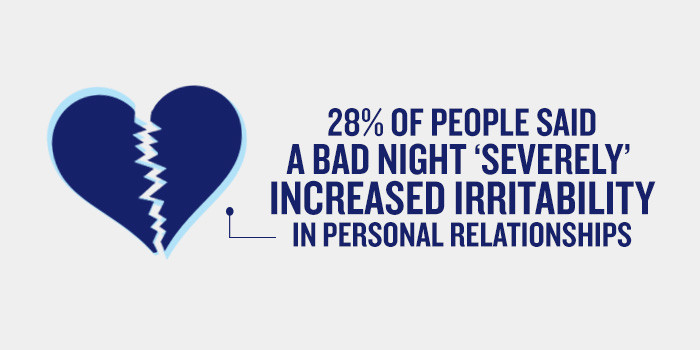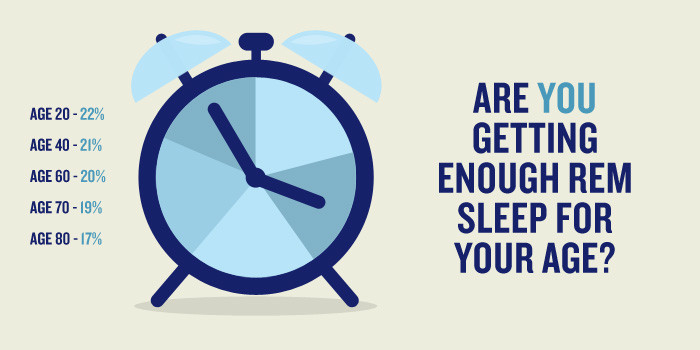WHAT CAUSES SNORING?
While snoring can indeed be harmless, that doesn’t mean it doesn’t cause problems. Anyone whose partner snores knows just how disruptive snoring can be. Snoring may cause tension within a household, as family members lose out on sleep, with snoring keeping them awake or waking them during the night.
Snorers themselves may also suffer from lack of sleep, either woken up by their own loud snoring or by their partner in an attempt to quieten them. However, sleep deprivation – and its subsequent repercussions – is not the only problem associated with snoring. In some cases, snoring can also be a symptom of sleeping disorders such as sleep apnoea.
According to the Sleep Health Foundation*, men are more likely to snore than women, with around 40% of men and 30% of women suffering from light snoring on at least some nights. Around 15% of people snore on most nights. Even children are known to snore, however, this is most likely caused by overly large tonsils, or by being overweight.
For those who snore – or those who live with snorers – it’s often worthwhile finding out more about the common causes of snoring. If the cause of the snoring can be discovered, there may be steps the snorer can take to reduce the loudness of their snoring, or even stop it altogether.

WHAT IS SNORING?
Before looking into the causes of snoring, it can be helpful to know what snoring is. Snoring is the sound that is created when parts of the throat – the pharynx – vibrate. Sitting right behind the tongue, the pharynx is held open by several small muscles when awake. When asleep, these muscles relax, allowing it to vibrate more easily, causing the sound we all know as snoring.
COMMON CAUSES OF SNORING
The Sleep Health Foundation points to a number of common causes of snoring, one of the most common of which is being overweight or obese. * When someone is overweight, there is more fatty tissue around the neck and at the back of the throat. This can make the throat narrower, causing it to vibrate more easily. Losing weight may stop snoring or decrease its loudness.
Having a blocked or stuffy nose can also cause problems with snoring, often as a result of suffering from allergies, or having a cold or sinus issues. With the nose blocked due to nasal problems, mouth breathing becomes more common, which can make snoring more likely. Similarly, people who naturally breathe through their mouth may be more likely to snore than those who breathe through their nose.
Another common cause of snoring can be the intake of alcohol or certain medications. Drinking alcohol and taking medication such as sleeping tablets, anaesthetic drugs, oral steroids and epilepsy drugs can relax the muscles in the throat, resulting in more vibration and more sound.
MORE COMMON CAUSES
As with many sleep-related issues, snoring be caused by a wide range of factors. Aside from the most common causes mentioned above, here are a few other factors that may cause snoring:
- Sleep Position: Sleeping on your back causes your tongue fall back in your throat, restricting your airflow and often resulting in snoring.
- Ear, Nose and Throat Issues: Snoring can be caused by medical issues such as nasal polyps, thyroid swellings, or even having a large tongue or deviated septum. Some people have a smaller than average airway, which can also cause problems with snoring.
- Pregnancy: Bulky throat tissue caused by pregnancy can cause snoring.
- Smoking: According to research as set out by the British Snoring & Sleep Apnoea Association**, a study showed that the prevalence of snoring in smokers was four times higher than in non-smokers, with snoring increasing in intensity alongside the increase of smoking.
In order to stop snoring, it’s best to know what is causing it. For those who are overweight, losing weight may stop snoring or decrease its loudness. Cutting back on alcohol or quitting smoking may also help, as can switching medications (under doctor supervision).
Specially designed pillows can encourage snorers to sleep through the night on their side, while other remedies such as nose strips and sprays may ease nasal problems that cause snoring. For snorers who feel they are sleep deprived or are suffering from a sleep disorder, visiting their GP or a sleep clinic is generally recommended.
* Sleep Health Foundation:
https://www.sleephealthfoundation.org.au/pdfs/Snoring.pdf
** British Snoring & Sleep Apnoea Association:
Feel it for yourself
Find a TEMPUR store or Stockist and try out our range of mattresses for yourself

SIGN UP FOR THE NEWSLETTERS!
By signing up, you agree to receive TEMPUR Australia’s products, services, news, reviews and promotions by emails. For more information on how we process your personal data, please refer to our Privacy Policy.



